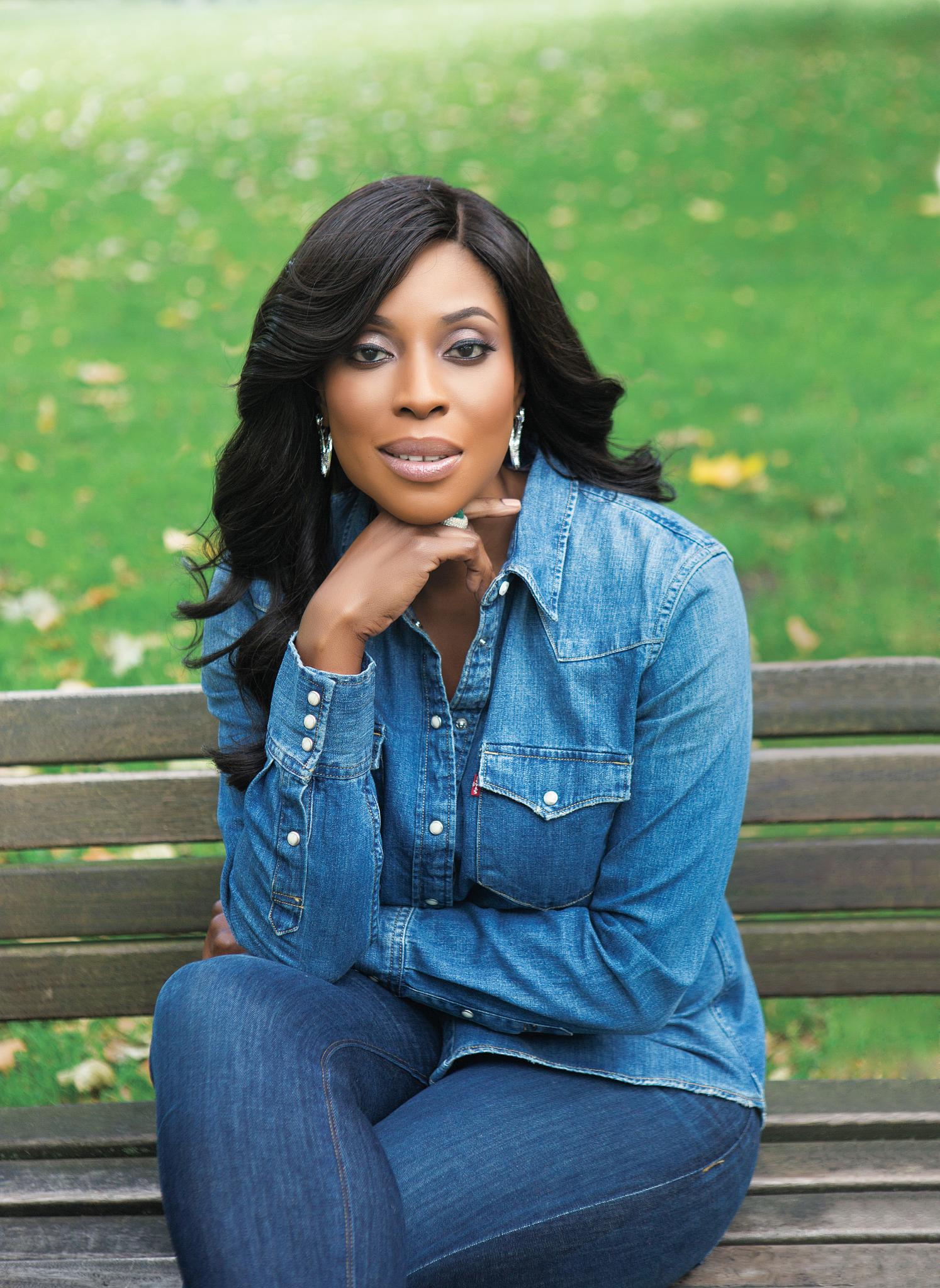
African women have long been at the heart of the continent’s economic growth trajectory. But as African nations further open themselves up for big business and commerce, women have become more bullish in seizing career opportunities and gaining a foothold in areas traditionally held by men. We talked to three enterprising leaders who are carving out new paths for women in business and making a killing while they’re at it.
MO ABUDU, 50 CEO & EXECUTIVE CHAIRMAN, EBONYLIFE TV TINAPA, NIGERIA
Early on in her life, Mosunmula (Mo) Abudu learned the power of changing narratives around identity. Growing up in Kent, a town in England with few Blacks at the time, Abudu remembers widespread ignorance about the customs and ways of life in her family’s native Nigeria. “You continually got asked the most ridiculous and mind-boggling questions like, “Do you guys live in trees and holes in Africa?” “Do you guys dance around fires?” and “What do you eat for breakfast?”” Abudu says. “I think somewhere deeply buried in my subconscious was a need to tell Africa’s story.”
Abudu set her sights on a TV show that would showcase African people’s myriad cultures and interests. “I had seen a gap in the market for talk shows that were quintessentially African,” says Abudu. In 2005 the former oil executive purchased a DVD collection of the twentieth anniversary of the Oprah Winfrey Show and obtained the contact information for Harpo Studios. Though she was unable to connect with the production giant, Abudu was undeterred. She shopped pilots of her talk show around for months until finally securing a deal with DStv, the leading pay-TV platform in Africa. In 2006, Moments With Mo debuted and became Africa’s first syndicated daily talk show. Today it airs in 49 African countries and in the United Kingdom.
Though the talkfest resonated with audiences across the continent, Abudu felt that her vision to portray Africa in a positive light needed an even bigger platform. She recalls, “This was what spurred me to start thinking of establishing Ebony-Life TV.” Her network, which launched in 2013, is home to a bevy of programs that target a mainly young, aspirational and trendy audience. The shows—which are a mix of original programming, like Chefrican, a cooking show, and local adaptations of international hits, such as Desperate Housewives Africa—have been wildly popular for the entertainment and lifestyle channel, which reaches more than 36 million viewers every month.
As Abudu grows her media empire, she says she’s guided by the mantra, “If you can think it, you can do it.”
NELLY TUIKONG, 29 FOUNDER & DIRECTOR, PAULINE COSMETICS NAIROBI, KENYA
Years ago Nelly Tuikong realized that many Kenyan women would have to travel long distances to Nairobi in order to buy beauty products. She also found that makeup consumption had been on a steady rise in the country (largely due to its growing middle class). So in 2013, she decided to launch her own cosmetics line. Developing Pauline Cosmetics, which is named after Tuikong’s mother, was a labor of love. “I started the business with only $400 to produce product samples and bootstrapped my way to where we are today,” explains Tuikong, a former nurse. “We started with a limited product range, zero cash flow and only word-of-mouth marketing.”
Today Pauline Cosmetics has nine employees, and according to Tuikong, the brand is in 25 stores and on track to make $500,000 in sales by the end of 2015. Though it has been a challenge to scale, Tuikong is intent on maintaining the integrity of her brand: “I focus on manufacturers who source shea butter from Africa to really tie our products to the continent.”
Constantly motivated by her customers’ needs, Tuikong says this month she’s adding new lip colors, eye shadow palettes, makeup brushes and foundation powders for her growing base. “I want Pauline Cosmetics to be more than just a line of products, but an experience, for our customers,” she says.
Pauline Cosmetics’ instant success may seem out of reach, but Tuikong advises women to “start wherever you are. Take advantage of what you have—whether it’s free Wi-Fi to start a blog or one piece of clothing you can post on Face-book Marketplace. And then every day, build momentum toward what you want to do.”
MONICA MUSONDA, 40 FOUNDER & CEO, JAVA FOODS LUSAKA, ZAMBIA
In 2011 Monica Musonda had a job she loved, working as general counsel for billion-dollar industrial enterprise Dangote Group in Lagos, Nigeria, when the idea came to her to start a food company in her native Zambia. “Malnutrition is one of the leading challenges facing southern Africa, particularly in cities that have experienced rapid urbanization,” says Musonda. So the Zambian- and London-trained lawyer got to work on a new project: producing affordable, locally made food for southern and eastern Africa.
How did an attorney develop one of the most successful food businesses in Africa? “At the Dangote Group, I was exposed to different sides of the business,” says Musonda. “I saw up close the way [CEO and world’s richest Black person Aliko Dangote] runs his business, the way he thinks about strategy, pricing, markets.”
In less than two years, Musonda’s eeZee Instant Noodles has become Zambia’s leading instant noodle brand, with average sales of half a million packets monthly. Java Foods has also begun developing a cereal made from local products, such as maize, soya and sorghum.
“We want to impact lives by purchasing crops from smallholder farmers and by ensuring the consumer has affordable foods,” says Musonda. “We are doing this one product at a time.”
Farai Gundan is the cofounder of faraimedia.com, an online and mobile advertising platform that focuses on Africa.
This article originally appeared in the August 2015 issue of ESSENCE magazine, on newsstands now!